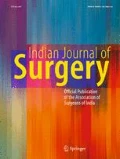Abstract
The aim of this study is to investigate the relationship between risk of catastrophic health expenditure for surgical care and the share of public health expenditures in total health expenditures, which is an important indicator of health system structure, and country’s income level. The relationship between risk of catastrophic health expenditure and public health expenditures and country’s income level was examined with panel regression analysis for 97 countries for the period of 2003–2015 via Stata 13.0 computer program. We found that both the share of public health expenditure in total health expenditures and the income have a statistically significant negative impact on the risk of catastrophic health expenditure for surgical care services. Catastrophic health expenditure endangers the routine expenditure and quality of life of households. In addition, it causes a decline in the economic and welfare indicators of countries and it negatively affects the quality of life of the households. That’s why, studies on the determinants of catastrophic health expenditures are both economically and sociopolitically important.
Similar content being viewed by others
Notes
Country list: Argentina; Armenia; Australia; Austria; Bangladesh; Belarus; Belgium; Belize; Benin; Bhutan; Bolivia; Botswana; Brazil; Bulgaria; Burkina Faso; Burundi; Cameroon; Canada; Chad; Chile; Colombia; Comoros; Congo, Dem.; Costa Rica; Cyprus; Czech Republic; Denmark; Dominican Republic; Ecuador; Egypt; Arab Rep.; Estonia; Finland; Gambia, The; Germany; Guatemala; Guinea-Bissau; Honduras; Hungary; Iceland; Iran, Islamic Rep.; Italy; Jordan; Kazakhstan; Kenya; Kyrgyz Republic; Lao PDR; Latvia; Lesotho; Lithuania; Luxembourg; Madagascar; Malawi; Malaysia; Mali; Malta; Mauritania; Mexico; Moldova; Morocco; Mozambique; Namibia; Nepal; Netherlands; Nicaragua; Nigeria; Norway; Pakistan; Panama; Papua New Guinea; Paraguay; Peru; Philippines; Portugal; Romania; Russian Federation; Rwanda; Senegal; Serbia; Sierra Leone; Slovenia; South Africa; Sweden; Tajikistan; Tanzania; Thailand; Timor-Leste; Togo; Tunisia; Turkey; Uganda; Ukraine; UK; USA; Uruguay; Venezuela, RB; Vietnam; Yemen, Rep.
References
Kamaci A, Yazici UH (2017) Econometric analysis of the impact of health expenditures on economic growth in OECD countries. Sakarya J Econ 6:52–69
Tokatlıoglu Y, Tokatlıoglu I (2018) Poverty creation capacity of catastrophic health expenditure between 2002-2011 in Turkey. Econ Approach 24:1–36
Turkish Statistical Institute (TURKSTAT) (2015) Catastrophic health expenditures in Turkey. http://www.tuik.gov.tr/jsp/duyuru/upload/yayinrapor/Katastrofik_Saglik_Harcamalari_2014_TR.pdf
Xu K, Evans DB, Kawabata K, Zeramdini R, Klavus J, Murray CJL (2003) Household catastrophic health expenditure: a multicountry analysis. Lancet 362:111–117
Berki S (1986) A look at catastrophic medical expenses and the poor. Health Aff 5:138–145
Dela Cruz AM, Nuevo CEL, Haw NJL, Tan VAS (2014) Stories from around the globe: financing catastrophic health expenditures in selected countries. PIDS Discussion Paper Series 2014:43, Philippine Institute for Development Studies (PIDS), Makati City
Cınaroglu S, Sahin B (2016) Catastrophic health expenditure and poverty impact. J Health Admin 19:73–86
Russell S (2004) The economic burden of illness for households in developing countries: a review of studies focusing on malaria, tuberculosis, and human immunodeficiency virus/acquired immunodeficiency syndrome. Am J Trop Med Hyg 71(Supp. 2):147–155
Kim JY (2014) Opening address to the inaugural “the lancet commission on global surgery” meeting. The World Bank. Jan 17. Boston, MA, USA
Meara JG, Leather AJ, Hagander L et al (2015) Global Surgery 2030: evidence and solutions for achieving health, welfare, and economic development. Lancet 386:569–624
Yerdelen TF (2013) Panel data econometrics: Stata applied. Beta Publishing, Istanbul
Hsiao C (2003) Analysis of panel data. Cambridge University Press, Cambridge
Pazaroglu M, Gurler OK (2007) Telecommunications investments and economic growth: panel data approach. Financ Econ Comments 44(508):35–43
Nerlove M (2005) Essays in panel data econometrics. Cambridge University Press, Cambridge
Paul A, Malick SC, Mondal S, Saibendu LK (2018) Exploring the determinants of catastrophic health expenditure and socioeconomic horizontal equity in relation to it: a rural community based longitudinal study in West Bengal. Int J Community Med Public Health 5:2522–2528
Njuguna N, Kimani DN, Kinyanjui B (2017) Determinants and distribution of catastrophic health expenditures and impoverishment in Kenya. J Econ Dev Stud 5:78–85
Azzani M, Roslani AC, Su TT (2019) Determinants of household catastrophic health expenditure: a systematic review. Malays J Med Sci 26:15–43
Lee M, Yoon K (2019) Catastrophic health expenditures and its inequality in households with cancer patients: a panel study. Processes MDPI https://doi.org/10.3390/pr7010039
Atake EH, Amendah DD (2018) Porous safety net: catastrophic health expenditure and its determinants among insured households in Togo. BMC Health Serv Res 18:175
Fazaeli AA, Ghaderi H, Fazaeli AA, Lotfi F, Salehi M, Mehrara M (2015) Main determinants of catastrophic health expenditures: a Bayesian logit approach on Iranian household survey data. Glob J Health Sci. https://doi.org/10.5539/gjhs.v7n4p335
Acknowledgments
The authors thank Musa Cirak, who works as a Neurosurgeon in Bakirkoy Doctor Sadi Konuk Training and Research Hospital and Ph.D. in Istanbul University-Cerrahpasa, Health Management, for his contributions and comments to make the article more understandable and clear.
Author information
Authors and Affiliations
Corresponding author
Ethics declarations
Conflict of Interest
The authors declare that there is no conflict of interest.
Additional information
Publisher’s Note
Springer Nature remains neutral with regard to jurisdictional claims in published maps and institutional affiliations.
Rights and permissions
About this article
Cite this article
Boz, C., Mete, A.H. & Aslan, Ö. Determinants of Catastrophic Health Expenditure for Surgical Care: Panel Regression Model. Indian J Surg 83, 1210–1215 (2021). https://doi.org/10.1007/s12262-020-02116-y
Received:
Accepted:
Published:
Issue Date:
DOI: https://doi.org/10.1007/s12262-020-02116-y


